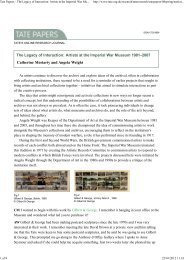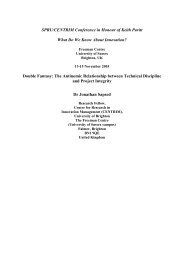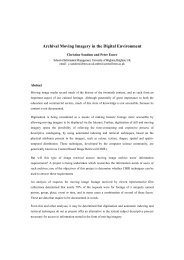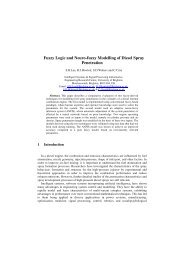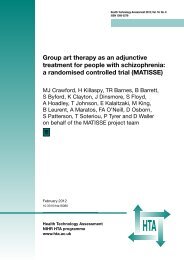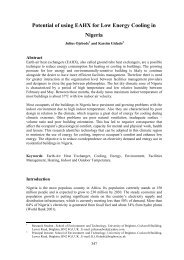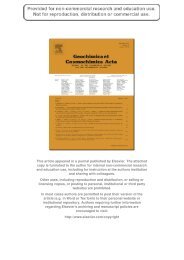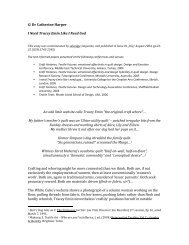NESTA Crime Online - University of Brighton Repository
NESTA Crime Online - University of Brighton Repository
NESTA Crime Online - University of Brighton Repository
You also want an ePaper? Increase the reach of your titles
YUMPU automatically turns print PDFs into web optimized ePapers that Google loves.
are <strong>of</strong>ten <strong>of</strong>fered for bulk purchases. 218 Advertisers on underground economy servers are<br />
usually self-policing and report ‘rippers’ 219 to the server administrators. 220 IRC<br />
administrators and operators, the people who provide and run the network, generally do<br />
it on a voluntary basis – which differentiates their operations from a commission-based<br />
model. However they also advertise and benefit from the information shared in the IRC.<br />
There is no overlap or interface between the legal and the illegal advertising-based<br />
models.<br />
Brokerage model: At the heart <strong>of</strong> the brokerage model are third parties known as<br />
brokers, who bring sellers and buyers <strong>of</strong> products and services together to engage in<br />
transactions. The broker usually charges a fee to at least one party involved in a<br />
transaction, sometimes both. There are various types <strong>of</strong> brokerage business model, such<br />
as the auction broker and the transaction broker.<br />
a) The use <strong>of</strong> the traditional auction brokerage model is now widely used online and<br />
expanded to more goods and services through the basic backing <strong>of</strong> a commissioned<br />
brokerage agent. For instance eBay is an example <strong>of</strong> legitimate auction site where the<br />
broker charges the seller (individual/merchant) a listing-fee and commission based on<br />
the transaction’s value and according to varying terms <strong>of</strong> the <strong>of</strong>fering and bidding. In the<br />
cybercrime business auction fraud is an ordinary practice where the victim will then send<br />
money to pay for the item on which they bid, but they will never be sent the actual item<br />
in question. This type <strong>of</strong> fraud can be especially difficult to prosecute since the <strong>of</strong>fender<br />
and victim may be located in different countries. Identity theft is another problem<br />
surrounding online auctions, and in many cases fraudulent transactions are used to steal<br />
financial information from the victims. In this model, cybercriminals simply exploit the<br />
weaknesses <strong>of</strong> the legitimate model.<br />
b) The transaction broker provides third-party services for buyers and sellers to settle<br />
their payment transaction. The goal <strong>of</strong> the broker is to ensure that the customers obtain<br />
218 Symantec (2008), “Symantec Report on the Underground Economy”, July 07–June 08.<br />
219 Rippers are members <strong>of</strong> the fraud community who steal from other members by reneging on agreements to<br />
provide cash for stolen data or simply keep the data without paying the provider. See<br />
www.symantec.com/norton/cybercrime/blackmarket.jsp.<br />
220 Symantec (2008), “Symantec Report on the Underground Economy”, July 07–June 08.<br />
Page 77




